Low Vision
As an optometrist my main aim in our job is to protect clear vision. We do this not only by providing spectacles and contact lenses but by detecting preventable vision loss by eye disease. Unfortunately sometimes, regardless of early detection, these eye diseases lead to low vision.
Low vision is vision loss that can no longer be correct to a reasonable level with spectacles or contact lenses. Common conditions which lead to low vision are cataracts, age related macula degeneration, glaucoma as well as various other conditions.
"Sight loss affects people of all ages. As we get older we are increasingly likely to experience sight loss." (Access Economics, 2009)
In the UK:
Without additional help using low vision aids people can struggle to read post, medicine bottles, watch TV and cook. Part of the low vision assessment is providing aids to help with such tasks but another key part is helpful tips on how to make the tasks easier.
In the UK:
- 1 in 5 people aged 75 and over are living with sight loss
- 1 in 2 people aged 90 and over are living with sight loss
- 63 per cent of people with sight loss are female, 37 per cent are male.
- Estimated two million people in UK living with sight loss.
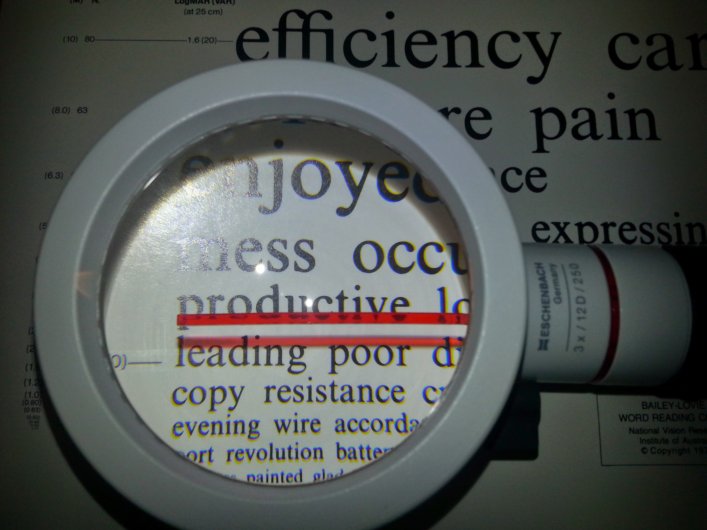
- "The number of people in the UK with sight loss is set to increase dramatically. It is predicted that by 2050 the number of people with sight loss in the UK will double to nearly four million" (Access Economics, 2009)
Without additional help using low vision aids people can struggle to read post, medicine bottles, watch TV and cook. Part of the low vision assessment is providing aids to help with such tasks but another key part is helpful tips on how to make the tasks easier.The Community Low Vision Service
If you still have problems seeing clearly even with up to date spectacles you may have Low Vision. A low vision assessment can help to identify any problems you have and to suggest how to best utilise your vision. The most common example of this is using a magnifier to make small print bigger but there are other low vision aids and advice available.The service is free of charge and the Low Vision aids are loaned to you for as long as they are useful. Normal spectacles may be needed to get the most out of your Low Vision aid but these are not provided on the scheme.
Accessing the Scheme
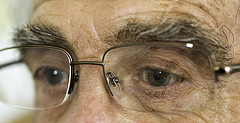 The Scheme is available for all patients registered to a GP in the North Tees or the South Tees area. To enter the scheme you will need to have had an up to date sight test in the last year. Your current optician or ophthalmologist will be able to tell you if you meet the requirements (6/18 or less in BE or N9 or less in BE) and they will be able to provide you with a referral into the scheme. In the North Tees area we can see any age category but in the South Tees area the scheme is limited to over 60s.
The Scheme is available for all patients registered to a GP in the North Tees or the South Tees area. To enter the scheme you will need to have had an up to date sight test in the last year. Your current optician or ophthalmologist will be able to tell you if you meet the requirements (6/18 or less in BE or N9 or less in BE) and they will be able to provide you with a referral into the scheme. In the North Tees area we can see any age category but in the South Tees area the scheme is limited to over 60s.If your last sight test was longer than a year ago another sight test would be required with your optician before entering the scheme. If you do not have an opticians in the area we will happily do a sight test for you. Most patients can claim a NHS sight test but there may be a charge for certain patients.
You should bring the following to any low vision assessment:
- your most recent spectacles
- any magnifiers or low vision aids you have (even if you’re not using them)
- The referral letter from your own optometrist
- anything that can help assess your visual tasks at home, e.g. crosswords, books, newspapers etc.
OPTICAL MAGNIFIERS - available on the NHS
- Stand Magnifiers
- Hand Magnifiers
- Pocket Magnifiers
- Spectacle Mounted Magnifiers
Other BASIC AIDS - these can be purchased from the RNIB
- Typoscopes
- Reading Stands
- Coloured Chopping Boards
- Level Indicators
- Talking Watches
- Large Print Books
- Audiobooks
LIGHTING
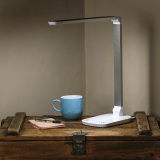 Good lighting can have a massive impact on the ability to read, especially to someone with Low Vision. They are also very good for intricate hobbies such as model making and crafts.
Good lighting can have a massive impact on the ability to read, especially to someone with Low Vision. They are also very good for intricate hobbies such as model making and crafts.We can provide a high powered LED lamp for £70.00 which has a touch sensitive dimming feature.
ELECTRONIC MAGNIFIERS
Unfortunately Electronic magnifiers are not available to NHS Low Vision patients. However, they can achieve up to 12x without distortion whilst still being able to be carried in a large pocket. These often give much better quality of vision than higher powered optical magnifiers that are provided by the NHS and are worth the extra investment.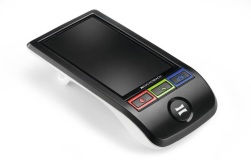 |
| ESCHENBACH Smartlux Digital - £500 |
 |
| Optelec Compact+HD - £390 |
Mr Iain Mellis is a qualified Optometrists with a Professional Certificate in Low Vision, registered to do the NHS low vision scheme at both Mellis Eyecare practices.
If you would like to book in for a Low Vision Assessment please call:
Thornaby
01642 751048
North Ormesby
01642 225671
|
Or book online at:


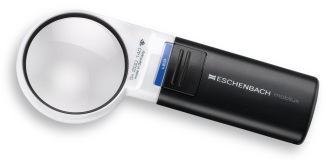

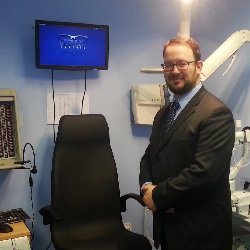
There are so many people who are affected by macular degeneration. This disease can be the cause of complete blindness. Los of central vision make hard to recognize face, difficulty while driving and reading. Currently this disease has no cure. But treatment can control this disease. Best macular degeneration treatment
ReplyDelete